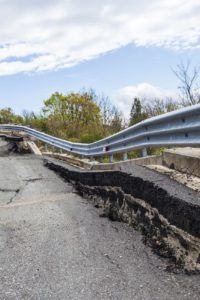 Do you remember August of 2011? (Check out our Blog for that week here)
Do you remember August of 2011? (Check out our Blog for that week here)
It was around 1:45 PM on a late August afternoon, and for some Maryland students, the school year had just begun. Suddenly, the ground started to shake. Desks moved, and children, teachers, and everyone else rushed outside. While some areas didn’t feel it, many of us did—and it was terrifying.
Personally, I remember how scared I was, having never experienced an earthquake before. I’m sure you remember where you were at that moment. How did you feel? Likely uneasy and not too comfortable. Were you thinking about your home at the time? Probably not. Like many others, you were likely focused on contacting your family and ensuring they were safe.
The earthquake caused significant damage to homes and buildings, and while it was considered a moderate quake by scientists, earthquakes can be far more destructive. If we were to experience a larger earthquake, would your property be able to withstand it?
Scientists have reported increased tectonic activity in North America, suggesting that the worst may still be ahead.
Now imagine if an earthquake didn’t occur on land but instead in the Atlantic Ocean. What if a tsunami formed and surged up the Chesapeake Bay? Would your property be protected then?
For more information on preparing for tsunamis, visit our Tsunami Disaster Preparedness page.
BEFORE AN EARTHQUAKE
- Prepare an emergency kit and make a family communications plan. (Click Here)
- Fasten shelves securely and place large or heavy objects on lower shelves.
- Breakable items should be stored in low, closed cabinets with a latch.
- Heavy wall items should be attached securely and away from beds, couches, or anywhere people might be underneath.
- Brace overhead light fixtures and top-heavy lamps.
- Have defective electrical wiring and leaky gas connections repaired by a qualified professional.
- Secure water heater, refrigerator, furnace, and gas appliances with strapping or bolting. If recommended by your gas company, have an automatic vibration shut-off valve installed.
- Keep cracks in ceiling or foundation repaired and check often for structural defects.
- Store weed killers, pesticides, and flammable products on bottom shelves in closed cabinets with a latch.
- Locate safest spot in each room under a sturdy table or against inside wall. No doorways.
- Hold family earthquake drills: Drop, cover, and hold on.
OR CLICK THE LINKS LOCATED IN THE MAP ABOVE FOR LIVE UPDATES
Earthquakes can be frightening to think about. While they don’t happen often in Maryland, they have occurred here—you may have even experienced one not too long ago. Earthquakes can cause serious damage, and if scientists are correct about increasing plate activity, Maryland could face stronger and more frequent quakes in the future.
You can’t control or predict when an earthquake will strike or the damage it might cause. But you can stay prepared and ensure your insurance coverage is ready to protect you.
If you have any concerns, give us a call today at 410-647-1111. At Huff Insurance, we’re looking out for you, so you don’t have to worry about tomorrow.
